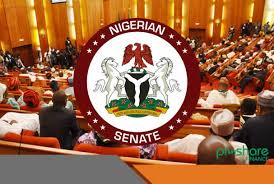By Clement Nwabuko.
Abuja – The Academic Staff Union of Research Institutions (ASURI), has said that the enactment of NRIC Bill, 2022, will undoubtedly be amongst the most important legislations of the National Assembly since independence because it will change the narrative of Nigeria as world’s poverty capital and current socio-economic ills bedeviling Nigeria and threatening to tear it apart.”
Speaking in Abuja during the Senate Public Hearing on the National Research and Innovation Council (Establishment) Bill 2022, the Secretary General of ASURI, Dr. Theophilus Ndubuaku, called on the National Assembly to amend the Public Procurement Act by removing budgetary allocation to research from under capital projects so that funds meant for research would go straight to researchers and not through contractors.
He condemned the practice of awarding research projects in the nation’s mandate research institutes to contractors.
Dr. Ndubuaku said going by the present statutory provisions, research is grouped together with capital projects and it is only companies that are duly incorporated with the Corporate Affairs Commission (CAC) and all other statutory agencies such as Nigerian Pension Commission (PENCOMM) and the Federal Inland Revenue Service (FIRS), among many others, that can bid for research projects as contracts.
“What these companies do is to collect the contract award, remove a good percentage of the contract sum and re-award same to researchers,” he said. “As long as we continue this manner, Nigeria cannot achieve substantial growth.
According to the ASURI Scribe, who is generally believed to be Nigeria’s No.1 advocate for research funding, the only way out is for the National Assembly to rise to the occasion by amending the Public Procurement Act to remove this shame of awarding research to contractors whose only interest is their profit margin.
He argued that the core problem of research funding in Nigeria has been the reliance on budgetary allocations. Quoting the Minister of Science, Technology and Innovation, Dr. Ogbonnaya Onu, Ndubuaku, a researcher of over 40 years, said no serious country funds science and technology from budgetary allocations.
Citing the Tertiary Education Trust Fund (TETFund) as an example, he said the impact of this institutionalized funding mechanism is being felt through the nation’s tertiary institutions.
“The Executive Secretary/CEO of TETFund, Professor Suleiman Bogoro, has said it openly that 98.5 per cent of capital projects funding in tertiary institutions is through TETFund and there is no reason to doubt him because the result is there for all to see.”
Said Dr. Ndubuaku: “As the leading and indeed the lone voice in the wilderness over the years for institutionalized mechanism for research funding and coordination, as provided by the National Policy on Science, Technology and Innovation, as represented by the National Research and Innovation Council (NRIC). That is the only way out for Nigeria and we are not shifting ground.”
According to him, through NRIC, the nation’s outlay on research funding would increase five times. “By comparison, it is noteworthy that while South Africa (population: 59.3 million) spends 1.5 per cent of its GDP on the funding of research, Nigeria (population: 213 million) spends a paltry 0.22 per cent. It is projected that if and when NRIC comes on board, the nation’s outlay on research funding would increase five times to one per cent of its GDP.”
Noting that the NRIC Bill was not new comer at the National Assembly, he said the surge in research funding was the projection of the 8th Assembly which first passed the NRIC, which was co-sponsored by 60 Senators in 2018. “The Bill was returned to it on 30th August 2018 by Mr. President, citing some grey areas. It was rectified and returned to the Villa in June 2019, but then it was again denied Presidential assent.”
Expressing optimism, the renowned researcher and labour leader told the Senate Committee on Science and Technology that there were positive signals that the Bill would receive Presidential nod this time around.
He said: “Following the sustained advocacy by ASURI and the Civil Society Coalition comprising of over 30 non-governmental organisations, the Office of the Secretary to the Government of the Federation (OSGF) in a letter dated 30th November 2021, advised ASURI to ‘re-introduce/re-present the Bill to the 9th National Assembly, while monitoring the stages that it passes through and inform the SGF when it is finalized and awaiting Presidential Assent.’”
Going down memory lane, Dr. Ndubuaku recalled that the Council was inaugurated during the President Goodluck Jonathan Administration, adding that its first meeting took place on 6th January 2016, under the Chairmanship of President Muhammadu Buhari and that the Bill only seeks to give legal muscle to the already existing institution so that it can function and fulfill its mandate.
He explained that the missing link in research that the anticipated NRIC seeks to fund is that which will have “direct bearing and impact on the nation’s socio-economic and technological development and not mere academic exercises.”
In driving home his point, he quoted Professor Suleiman Bogoro, the Executive Secretary of TETFund, who was reported by an online newspaper to have said that, “Nigerian universities have dwelt too long on teaching rather than research…most of the country’s research is only for promotion and not for addressing societal ills.”
He regretted that in the last 15 years, every effort made by the National Assembly to amend the TETFund Act to extend its funding to research institutes was vehemently resisted and scuttled by TETFund and the Academic Staff Union of Universities (ASUU).




